Sunday, March 22, 2009
British Library Fesses Up to "Mislaid" Books
Oh my! Story at the Guardian.co.uk.
British Library mislays 9,000 books
• Text worth £20,000 among missing volumes
• Some have not been seen for more than 50 years
Anil Dawar and Maev Kennedy
The Guardian, Tuesday 17 March 2009
An 1876 illustrated edition of Alice in Wonderland is among the missing books. Photograph: Rischgitz/The Hulton Archive
More than 9,000 books are missing from the British Library, including Renaissance treatises on theology and alchemy, a medieval text on astronomy, first editions of 19th- and 20th-century novels, and a luxury edition of Mein Kampf produced in 1939 to celebrate Hitler's 50th birthday.
The library believes almost all have not been stolen but rather mislaid among its 650km of shelves and 150m items – although some have not been seen in well over half a century.
One item, an essay entitled Of the Lawful and Unlawful Usurie Amongest Christians, by 16th-century German theologian Wolfgang Musculus, is valued by the library at £20,000, and has not been seen for almost two years. Others are precious only to a specialist market, such as a set of tables of 1930s London cab fares, or the 1925 souvenir history of Portsmouth Football Club.
Although the library has not listed any value for thousands of the books, a quick Guardian tot-up of the market price of nine collectible volumes came to well over £3,000 – including £1,300 for a first edition of Oscar Wilde's only novel, The Picture of Dorian Gray, published in 1891, missing from the library's shelves since 1961.
The library records all of these items as "mislaid" rather than gone for ever, still less stolen. Despite well-publicised recent cases - such as that of Edward Forbes Smiley III, convicted in the US three years ago of stealing more than 100 maps from institutions including the British Library, and Farhad Hakimzadeh, an Iranian collector jailed in January for cutting maps, illustrations and pages from priceless volumes in the British Library and other collections - the library is convinced that almost all the missing texts are still somewhere within its walls.
Jennifer Perkins, the library's head of records, said that books and other items were usually identified as mislaid when a reader requested them - more than 3.5m items are delivered to the reading rooms every year - and the book was not on its correct shelf. Other losses were revealed in rolling audits of the enormous collection.
"There are a number of reasons why collection items may not be at their correct shelf location: they may have been misplaced on the shelves, the shelf mark label may have become detached from the spine and the item is being checked and reshelved, or the catalogue record may not have been altered to reflect a changed shelf mark," said Perkins.
"The library takes the security of its collections very seriously and has a range of measures designed to protect collection items from inadvertent or deliberate harm."
Keith Rathmill, of library security firm SA Secure, said he was surprised the list was not longer - one small library which consulted his firm had lost about a fifth of its collection in four years. "It is a huge collection and no building is secure," he said. "There's theft from all libraries, but the British Library can think itself lucky it isn't in a worse situation - it doesn't attract the dregs of society."
The library's greatest treasures, priceless documents including Magna Carta and the Lindisfarne Gospels, are kept in a special gallery with rigorous conservation and security controls. For the rest of the collection, identified by barcodes and shelf numbers but not by microchips or any technology the library fears might prove ephemeral, a rolling audit gives priority to the most valuable and heavily used items, a spokesman said.
Perhaps significantly, many of the losses are recorded just before or after 1998, the year the library moved from the British Museum to St Pancras.
Most of the losses are 19th and 20th century texts, including first editions of novels by Charles Dickens and John Updike, although many older books have also vanished, including a 1555 edition of 12th-century Jewish scholar Moses ben Maimon's Letter on Astrology, missing since 1977, and a 17th-century guide to Rome.
Missing treasures
• Wolfgang Musculus, Of the Lawful and Unlawful Usurie Amongest Christians, 1556. Missing since 2007. British Library valuation £20,000.
• Moses Ben Maimon, Letter on Astrology, 1555. By 12th-century Jewish philosopher and Torah scholar. Missing since 1977. Nothing comparable on market.
• Oscar Wilde, The Picture of Dorian Gray, 1891. First edition missing since January 1961. Valued by Bookride at over £1,300.
• Ezra Pound, Canzoni, 1911. First edition of poetry collection, described as "balderdash" by contemporary reviewer, missing since 1999. Copy on Amazon at £425.
• Lewis Carroll, Alice's Adventures in Wonderland, 1876 illustrated edition. Missing since 1976. Valued at £350 by Abe Books.
Subscribe to:
Post Comments (Atom)

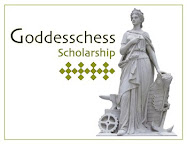
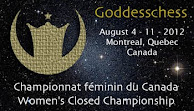


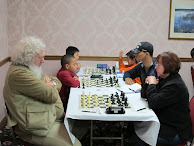

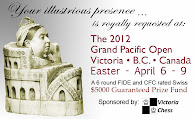

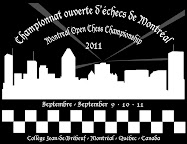










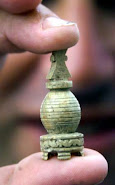











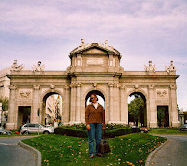


No comments:
Post a Comment